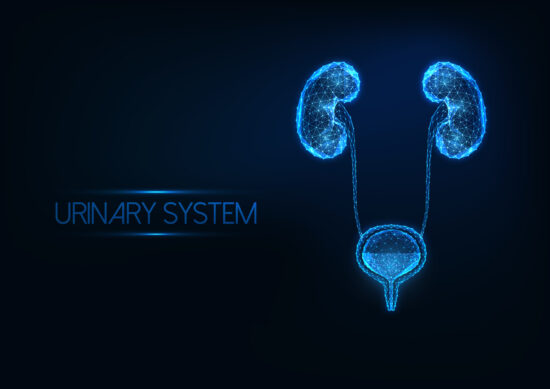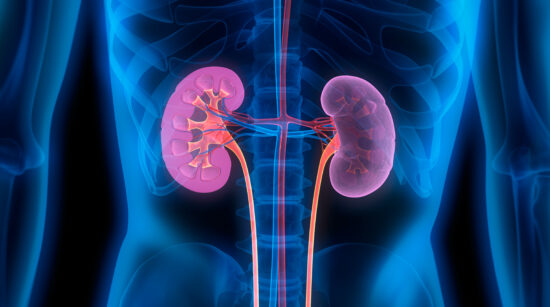Are you curious about how your body works? Have you ever wondered how long it takes for your kidneys to filter water?
Table Of Contents
−Well, look no further! We’ll explore the science behind kidney filtration and answer the question: How long does it take for kidneys to filter water? Let’s get started!

Introduction to the kidney filtering process
The kidneys are amazing organs that play a vital role in maintaining your health. They are responsible for filtering waste products and excess water from your bloodstream and producing urine to excrete them. This process is known as Glomerular Filtration, and it is the first step in making urine.
On average, the kidneys filter about 200 quarts every 24 hours. The glomerular filtration process is an important part of keeping your body functioning properly, and it is essential to drink plenty of fluids to allow this process to occur.
The anatomy of the kidney
The kidneys are essential organs that filter and clean the blood, removing waste and extra water to make urine. Each kidney is made up of millions of tiny structures called nephrons. These Nephrons are the functional units of the kidneys that filter blood. Each nephron has a filter called the glomerulus as well as a tubule.
The glomerulus filters blood, which enters the kidneys through the renal arteries. The tubule then works to reabsorb useful substances back into the bloodstream, allowing excess water and waste products to be expelled as urine. This process happens constantly and is necessary for keeping our bodies healthy and functioning properly.
How is water absorbed?
When it comes to how water is absorbed, it all starts with the stomach. Unlike food or some beverages, water can be “digested” in as little as five minutes or up to a few hours, depending on whether your stomach is full or empty.
This is a vital hydration process since water takes a long time to reach the kidneys, the body’s filtering system. If you drink water on an empty stomach, it can get absorbed in less than 5 minutes after you drink it.
On the other hand, if you eat a big meal before drinking water, it will take longer for the kidneys to filter it. Once the water is absorbed and sent to maintain vital functions, it eventually reaches the kidneys to remove toxins.
Drinking plenty of water throughout the day helps ensure that your body stays fully hydrated and your kidneys stay healthy.
What do kidneys do with water?
When water is filtered, it is reabsorbed back into the bloodstream. Kidneys also produce hormones that help regulate blood pressure and produce red blood cells. When the body has used as much water as it needs, it will be passed out of the body as urine. This method helps to maintain water balance and keeps the body healthy.
In addition to filtering and reabsorbing water, kidneys control sodium levels and maintain a healthy acid-base balance. All these functions require a steady water supply, so it is important to stay hydrated to keep your kidneys functioning properly.

How long does it take for kidneys to filter water?
The kidneys are incredibly efficient organs and can filter up to 120 ml of water per minute, around 180 liters daily. The entire plasma volume (about 3 liters) is filtered 60 times.
It is essential to maintain healthy kidney function by consuming the right amount of water for your body. When the kidneys have used as much water as it needs, it passes the rest out as urine, helping to keep your body free from toxins.
Drinking the right amount of water can also help prevent dehydration and support other bodily functions. However, it is important to remember that drinking too much water can be dangerous, so it’s important to be mindful of your intake and speak to a doctor if you’re unsure.
Benefits of drinking water
Drinking water can offer many health benefits to people of all ages. Not only does water help to keep you hydrated, but it also increases energy levels and boosts performance during exercise.
Drinking the recommended amount of water for your height and weight can help improve kidney function and reduce the risk of developing kidney stones. Water also helps to flush out toxins from the body, which can help to keep your kidneys healthy and to function properly.
Drinking water can also help reduce fatigue, headaches, and muscle cramps caused by dehydration. Maintaining a healthy water intake is essential for good kidney health, so ensure you get the right amount of water for your body’s needs.
Impact of drinking large amounts of water
When drinking large amounts of water, it is important to be aware of its impact on your kidneys. Excessive water intake can cause water intoxication, or hyponatremia, which can lead to nausea, confusion, and even seizures. Long-term excessive water consumption can also hurt the kidneys by causing them to become overworked and overwhelmed, leading to kidney damage.
Additionally, drinking too much water at once can cause your kidneys to filter quickly and may decrease the number of electrolytes in your body. When considering drinking large amounts of water, it is important to be aware of all these potential risks.
To reduce the risk of potential harm, it is best to drink only the right amount of water for your body size and activity level and spread drinking over the day.
How to increase your water intake
Increasing your water consumption is an important way to keep your kidneys healthy. It is important to set goals and track your progress to make a lasting change.
Start by setting small and achievable goals, such as increasing the water you drink each week. This incremental approach can be more successful than drinking excessive water all at once.
Additionally, it is important to remember that water absorption can begin within 5 minutes after ingestion and peak around 20 minutes after ingestion. For this reason, drinking small amounts of water throughout the day can help ensure your body receives the hydration it needs.
When to see a doctor
It is important to be aware of when to see a doctor. If you are experiencing any symptoms such as increased thirst, frequent urination, pain or discomfort in the area of your kidneys, swelling in your legs or ankles, or foamy urine, you should consult your doctor.
Additionally, if you have high blood pressure or diabetes, it is important to ensure your kidneys are functioning properly. Your doctor may recommend certain tests to check for any signs of kidney damage.
If the tests reveal that you have chronic kidney disease (CKD), there is no cure, but you can take steps to preserve function for as long as possible with proper nutrition and lifestyle changes. Make sure to drink enough water throughout the day and be “water wise” – drinking the right amount for your body’s needs.

Jay
Jay is a health and wellness enthusiast with expertise in water quality and nutrition. As a knowledgeable advocate for holistic well-being, Jay successfully manages Type 2 Diabetes through informed lifestyle choices. Committed to sharing reliable and authoritative insights, Jay combines firsthand experience with a passion for enhancing health."

